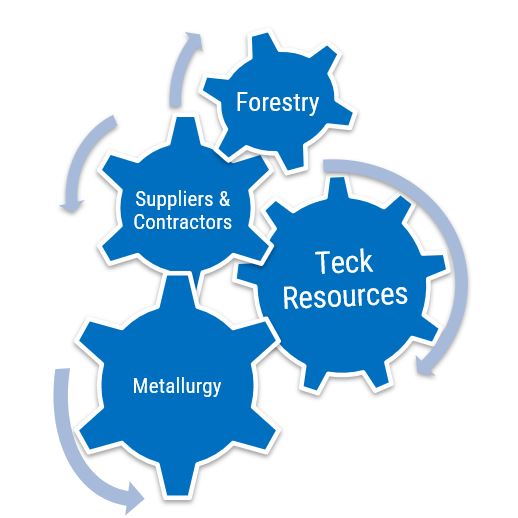Study Looks at Regional Supply Chain Barriers
Regional economic driver Lower Columbia Initiatives Corporation (LCIC) is investigating regional supply chain limitations and stimulating a circular economy by directly supporting businesses.
They’ve recently released a Lower Columbia Regional Supply Chain Study, which highlights specific barriers for 21 prominent industrial companies in the battery recycling, graphite manufacturing, ultra-high purity metals, and forestry sectors. This research is focused on supporting the transition from a linear economy to a sustainable circular economic model, and will be presented in further detail at a virtual event on Thursday, October 28th.
“We’re now prioritizing data-driven activities,” says LCIC Director Rebecca Richards. “Taking action to support local industries should be informed by the businesses within them. Research is just the first step; it’s essential that studies such as this are acted on so that benefits are realized.”
Phase 1 of the study details several common issues, including increased supply costs, limited capital investment, stagnated business growth, and broad skill gaps. LCIC is currently reviewing the report recommendations and determining how it can work collaboratively with other organizations and local governments to address significant supply chain barriers, such as transportation.
“To further implement a circular economy, we have to carefully examine and understand both internal and external supply chains,” says Richards. “This is critical work that supports the established business community and is in line with our Metal Tech Alley goals of setting the whole region up for investment success and furthering the circular economy.”
The initiative, funded by the Economic Trust of the Southern Interior (ETSI-BC), is supported by economic development practitioners in the West Kootenay, says Richards, noting they’re also broadening the scope of the study to include a greater cross-section of West Kootenay industry.
“We recognize that the Lower Columbia economy is not a silo and that we’re integrated with the entire region’s economy,” she adds. “To have a full understanding, we need to include all West Kootenay corridor sectors.”
LCIC, in partnership with management consulting firm Blue Monarch (which brings specific supply chain management expertise) and the Basin Business Advisors, is connecting businesses with experienced consultants who are poised to support their business needs and challenges. Information on how to access these services will be presented along with the report details at the online information session at noon on October 28th.
Anyone wishing to attend the virtual lunch and learn can register at: https://us06web.zoom.us/meeting/register/tZYvcOCvrj8uHNDG7wSg_5HfYVg-Hec6WG2Y
Regional Supply Chain Study main takeaways:
- Industry supply chains have been negatively affected by COVID-19, especially with respect to price volatility on supplies and products. They also face supply chain barriers such as infrastructure inadequacies and other supply chain problems such as lack of resources.
- There are significant opportunities for business growth provided that local companies are properly supported to pursue them. These opportunities include expanding business operations to include value-added products and fostering industry clusters in emerging markets to attract new investment.
- The LCIC should undertake projects and service delivery that support local industry to address supply chain needs and pursue new business opportunities.
























